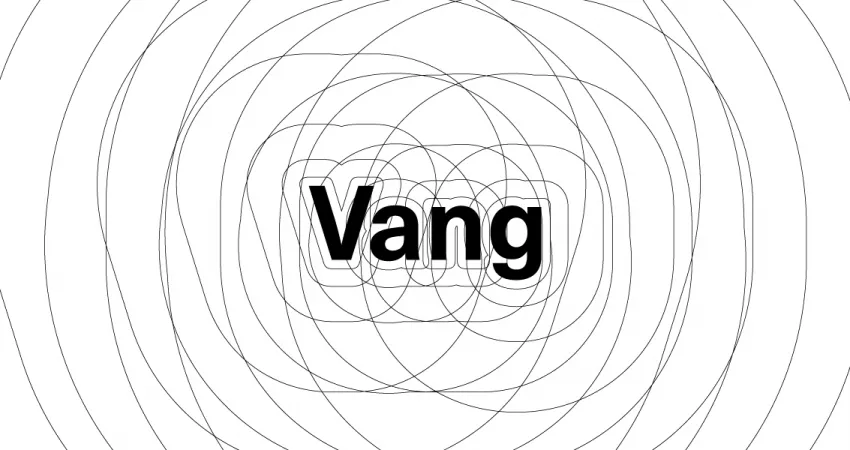VANG IV. Músicas en vanguardia

8 pm
The first concert will start al 7.30 pm
Auditorium
Free entry until full capacity is reached
The telescope, the microscope and X-rays succeeded in making visible the invisible. Out of the same fascination for the possibility of capturing light waves came first the phonautograph and, later, the phonograph. In this way, technology sought to make manifest that which is not immediately perceptible to the senses. But that search was not just a whim: the configuration of life (and indeed the possibility of life) is largely determined by that which is not seen. Particles, microbes and planets constitute the specific forms of life. This is something we are well aware of today. In response to the pandemic, technology has - apparently - tried to temporarily replace “real” everyday experience, marked by the meeting of bodies and the collective occupation of public or semi-public spaces. In other words, what had been postulated as a proposal - terrifying for some, fascinating for others - on such platforms as Habbo Hotel (2000) or Second Life (2003) or the video game The Sims (2000), now seemed to be a model for our own lives. Turned into avatars, nicknames and mass users of videoconferences, we waited. We are still waiting. We ourselves had become spectral apparitions. Experiencing “at first hand” what might otherwise have made an excellent script for a science fiction novel makes it abundantly clear that presence is radically irreplaceable. This evidence, so threatened by all the efforts made to create immersive interactive realities, sophisticated 3D, and improved online meeting platforms, brings us back to what Paul Valéry told us in a very different context: that the deepest thing is the skin.
Based on its customary confluence of artistic sound practices (newly created music, sound art, performance art, free improvisation...), VANG IV invites us to explore this problem through a series of proposals that will bring to the fore those listening experiences in which corporality is seen to be absolutely irreplaceable: in the mere presence of sound and sounding bodies, in the spatiality of sounds that cannot be rendered virtual, in the multidimensionality of the living experience or, in short, in the need to collectively share a common place and time.
18.03.2021
VANG #1 Truss
25.04.2021
VANG #2 Raúl Cantizano + Los Voluble
27.05.2021
VANG #3 Pilar Fontalba + Edith Alonso
17.06.2021
VANG #4 Frames Percussion
23.09.2021
VANG #5 Llorenç Barber + Coro Nur/Coro Xenakis
14.10.2021
VANG #6 Concerto Zapico + Alejandra Hernández
18.11.2021
VANG #7 Úrsula San Cristóbal + Montserrat Palacios
16.12.2021
VANG #8 Phace Ensemble + Peter Ablinger
Curators:
Alberto Bernal
A composer and sound artist with a classical background and varied influences, Alberto Bernal’s works are framed near the turning point between concert situations and other disciplines such as installation, performance art or video art. He began his musical studies in Madrid and Salamanca before moving to Germany where he studied composition and electro-acoustic music under Mathias Spahlinger, Mesías Maiguashca and Peter Ablinger. Above all else, his work is a search for and a deconstruction of the boundary between the aesthetic and the socio-political, as well as between the different traditional realms of perception (sound, image, word, everyday perception). His work has been presented in various places in Europe, America and Asia, and he has received several awards and scholarships: Darmstadt International Festival (2002 and 2004), Humboldt Foundation, DAAD/La Caixa Foundation, Ministry of Culture, Goethe Institute, Community of Madrid, SWR Stuttgart, European Academy, Residencia de Estudiantes Hall, Casa Velázquez or Matadero Madrid. He is currently co-director of the Master's Degree in Electro-acoustic Composition at the CSKG (Madrid) and professor of Analysis and Composition Techniques at the Conservatory of Music of Aragon.
Anna Margules
Anna Margules studied the recorder under Horacio Franco, and French Modern Literature, both at the National Autonomous University of Mexico. She studied the flute in Amsterdam under Walter van Hauwe at the Sweelinck Conservatorium. Under the guidance of Pedro Memelsdorff, she continued her studies into the music of the Italian Trecento in France, Italy and Spain. She obtained her master's degree in Artistic Performance, specialising in the Recorder, at the Advanced School of Music and the Performing Arts in Porto. Her interest in the diverse forms of contemporary artistic expression has constantly led her to collaborate with different composers and to perform numerous premières. In addition, she has been extremely active in the field of Early Music, disseminating the repertoire of the 14th and 16th centuries. She has been a member of various chamber ensembles: Plural Ensemble (20th century), Los Músicos del Buen Retiro (17th-18th centuries), Sforzinda (16th century) and especially Trio Subtilior (14th century), Intratempo (a recorder trio), La Recisunda (17th-20th centuries). She combines her concert activity with teaching, giving specialised courses in Mexico, Cuba, Sweden, Germany and Spain. She is currently teaching at the Conservatory of Music of Aragon and at the Autonomous University of Madrid.

